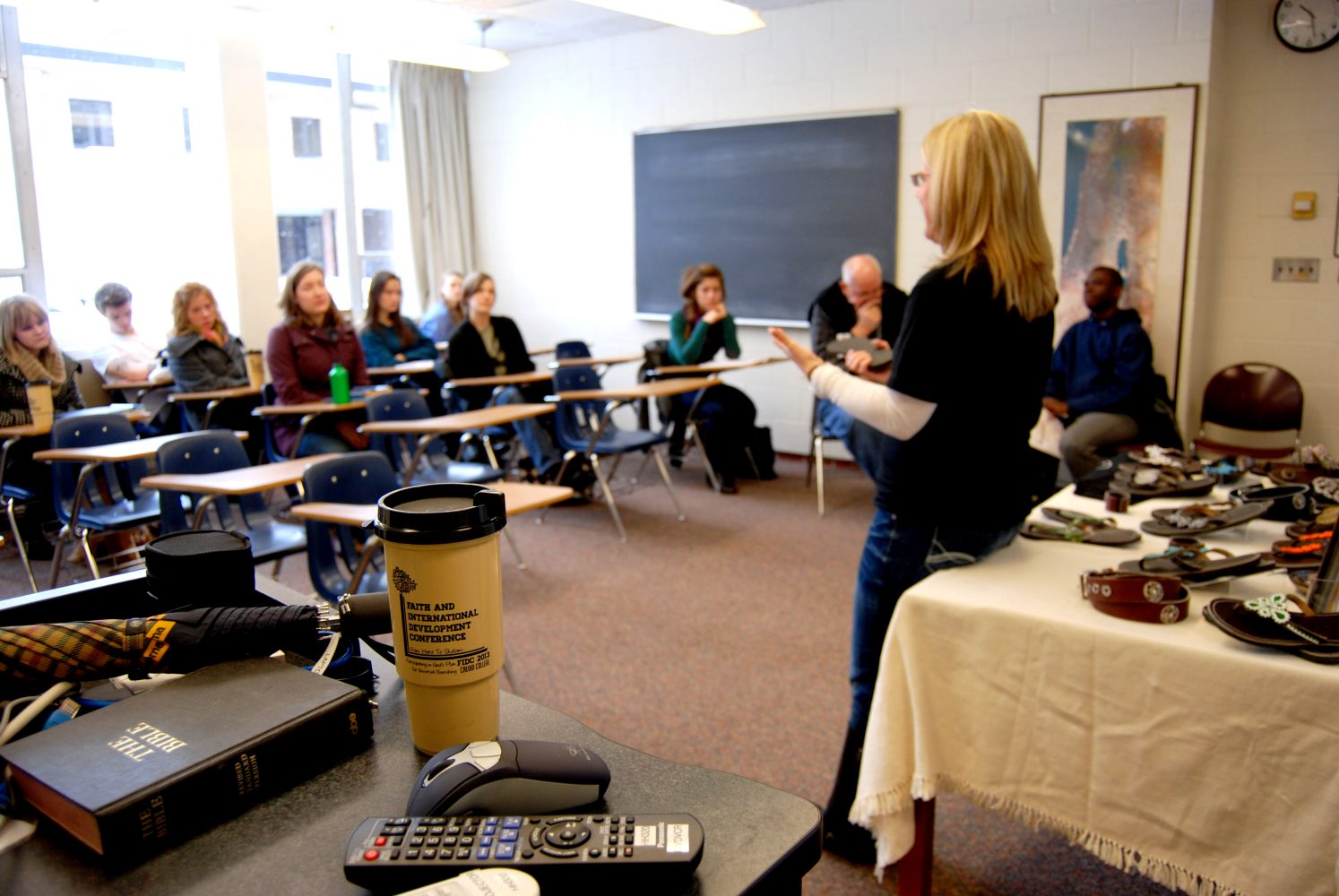In a small room tucked in the back of North Hall, sophomore Emily Lawson and junior Gabe LePage stand in front of a whiteboard filled with notes, schedules and to-do lists. As the co-directors of this year’s Faith and International Development Conference (FIDC), Lawson and LePage have a lot to do before the conference rolls around on February 5.
Lawson and LePage, along with dozens of other student volunteers, are in charge of arranging transportation for seven plenary speakers from Cambodia, Honduras and across the United States. They also work to recruit sponsor organizations, such as Bread for the World and Compassion International, and coordinate with the 22 other colleges who send students to the conference.
Planning the FIDC is a huge job, but it’s one Calvin students have done successfully for the last nine years. This year’s conference planning started back in the spring, when Lawson and LePage chose the theme, “Healthy Humility: Learning to Learn.” Over the summer, they scheduled plenary speakers for the conference.
“I think the speakers are all really high quality,” said Lawson. “It’s hard to even pick a few to showcase. They come from such a wide variety of backgrounds, and their talks are going to be connected but different.”
Plenary speakers include Carrie Hessler-Radelet, director of the Peace Corps; Michael Woolcock, who works with the World Bank’s Development Research Group; and Kurt Ver Beek, founding member of Association for a More Just Society and the director of Calvin’s Justice Studies semester in Honduras.
The conference costs $15 for Calvin students and will also host breakout sessions, organization fairs and times of worship. “It’s the same price as a concert ticket,” said Lawson.
“This is a conference for any Christians interested in using their professions or working in their church to help address issues of poverty and injustice and oppression,” said LePage, who also co-directed the conference in 2014.
Lawson attended her first FIDC last year, barely a week after returning from an Interim trip. “I feel like when I came into the conference last year I was in a place where I was a little upset because I had seen people doing damage with their desire to help. I was wondering, should anyone do development?”
She was encouraged to find people and organizations who were asking the same questions and even coming up with some of the answers. “It’s really encouraging because you meet people who sit down and think about things like that and organizations who know that is a problem but make changes,” said Lawson.
“It’s also a great opportunity to find internships and make connections for finding jobs,” said LePage. “That’s some of the organizations’ motive for coming here.”
“By coming to this conference you’ll see how many other Christians have gone about these issues of poverty and injustice,” said LePage. “It opens your eyes.”
Though the conference does focus on international development, it is designed with more than just international development studies majors in mind.
Lawson, for example, is majoring in civil engineering with an IDS minor. In her engineering classes, Lawson said, “You may talk about how to make a well, but you don’t talk about the social impact of that.”
“Whether you’re nursing or engineering, it’s a great time to come and listen to great ideas and talk about issues that maybe aren’t brought up in our major’s technical classes,” she said. “In that sense, I think it’s more valuable for people who aren’t IDS majors.”
LePage also sees development as something that applies to all Calvin students. “Development is an institutional way Christians have sought to follow Christ’s call to love the poor, to break the yoke of the oppressed, to heal the sick and to free the prisoners,” he said. “It is a way to proclaim God’s kingdom and proclaim the gospel.”
“I haven’t met someone yet who knows the conference and doesn’t love it and support it,” Lawson said. “I would love to see Calvin’s campus becoming aware of it. It’s like a hidden jewel.”








